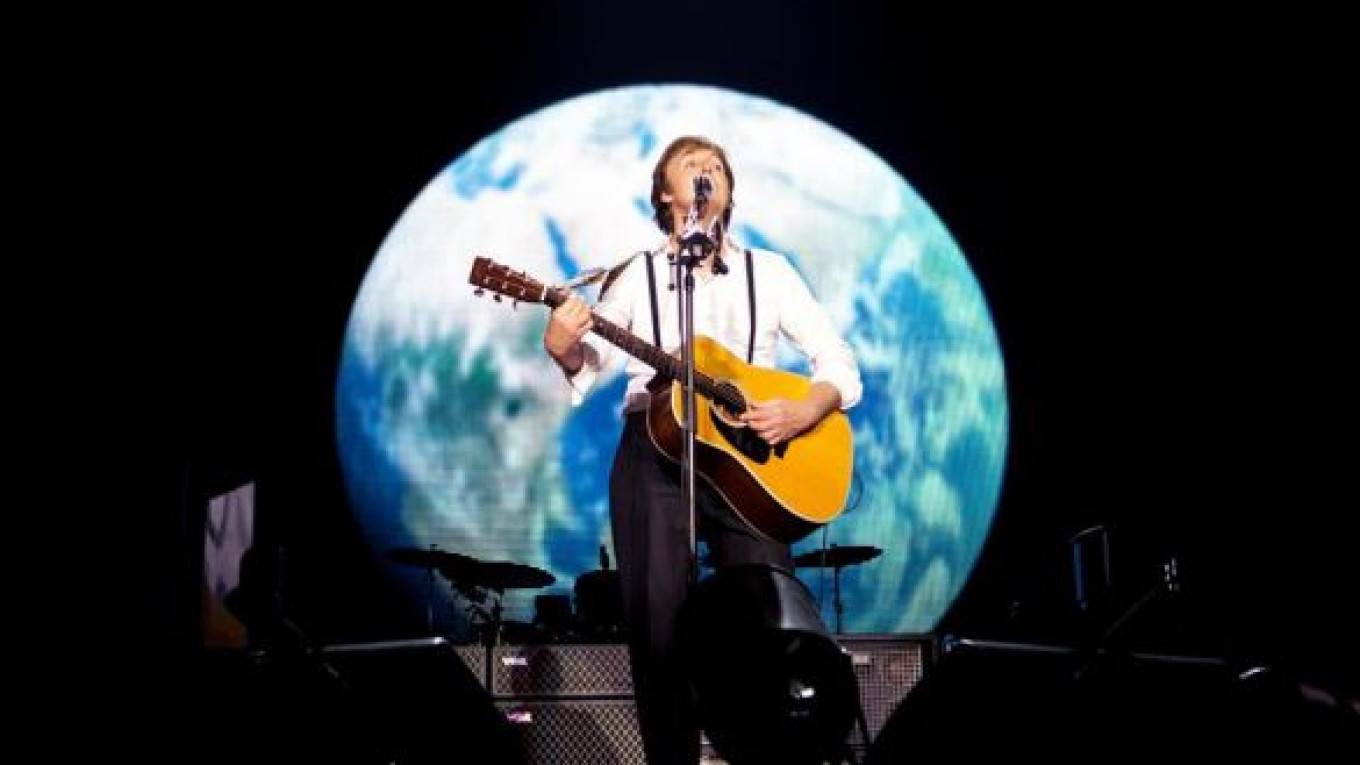Ex-Beatles star Paul McCartney on Thursday published a to President Vladimir Putin, urging him to help release the 28 Greenpeace activists and two journalists held in custody for attempting to board an Arctic oil rig.
McCartney dismissed accusations that the protesters had been "doing the bidding of Western governments" and had threatened the safety of Gazprom Neft employees when they held a protest near the company's Prirazlomnaya platform in the Pechora Sea in September.
"I am writing to assure you that the Greenpeace I know is most certainly not an anti-Russian organization. In my experience they tend to annoy every government!" he wrote. "And they never take money from any government or corporation anywhere in the world."
Critics have accused Greenpeace of using its protests to undermine Russian companies in the interest of their foreign competitors, while supporters of the group have argued that the detainees, who could be sentenced to jail terms on hooliganism charges, are political prisoners.
The musician also called on Putin to weigh in on the issue despite saying that Russian courts are independent — a constitutional provision that many analysts believe to be a dead letter in the country.
"I understand, of course, that the Russian courts and the Russian presidency are separate," McCartney said. "Nevertheless I wonder if you may be able to use whatever influence you have to reunite the detainees with their families"
McCartney said he still often thought about Russia, though many years had passed since his high-profile concert on Red Square in 2003 — his first performance in the country, which drew tens of thousands of people. He also cited "Back in the U.S.S.R.," a 1968 Beatles song devoted to the Soviet Union that is still highly popular in Russia.
"Been away so long I hardly knew the place, gee it's good to be back home," he wrote. "Could you make that come true for the Greenpeace prisoners?"
The Beatles gained huge popularity in the Soviet Union, with the authorities initially attempting to thwart their influence and then conceding by releasing official records of the group.
McCartney has closely followed political developments in Russia. In August 2012, he wrote a letter of support for three members of the Pussy Riot punk group who were jailed then for singing an anti-Putin song in the Christ the Savior Cathedral.
A Message from The Moscow Times:
Dear readers,
We are facing unprecedented challenges. Russia's Prosecutor General's Office has designated The Moscow Times as an "undesirable" organization, criminalizing our work and putting our staff at risk of prosecution. This follows our earlier unjust labeling as a "foreign agent."
These actions are direct attempts to silence independent journalism in Russia. The authorities claim our work "discredits the decisions of the Russian leadership." We see things differently: we strive to provide accurate, unbiased reporting on Russia.
We, the journalists of The Moscow Times, refuse to be silenced. But to continue our work, we need your help.
Your support, no matter how small, makes a world of difference. If you can, please support us monthly starting from just $2. It's quick to set up, and every contribution makes a significant impact.
By supporting The Moscow Times, you're defending open, independent journalism in the face of repression. Thank you for standing with us.
Remind me later.






